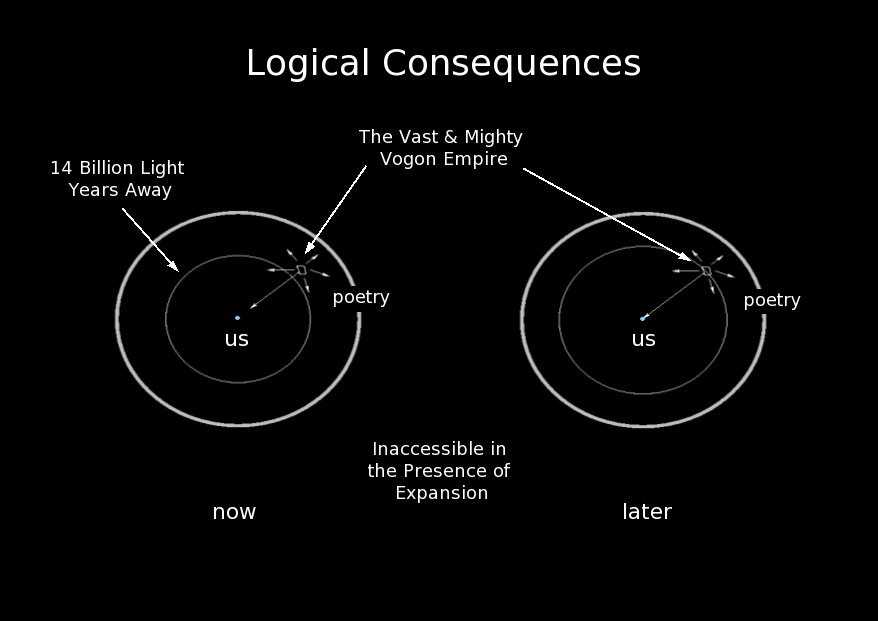










In classical Aristotelian logic, any proposition can be determined to be true or false. But this type of logic isn't adequate for understanding what happens in an expanding universe where there is a finite maximum speed for the transmission of signals. We currently do not have any contact with parts of the universe that are further away than about 14 billion light years. So, for example, if the Vogons live further than 14 billion light years away, then we currently have no way of knowing whether their poetry really is as bad as Douglas Adams suggested. If they live too far away and the universe continues expanding forever, we will never be able to sample their poetry. But let's assume that they live in the part of the universe that we will eventually be able to see. Once the universe becomes old enough for signals to reach us from the Vogons, then we may be able to evaluate their poetry, if they ever send us any and if we happen to be listening in the appropriate way when they do.
As this indicates, consideration of cosmological questions requires the use of a type of logic that has 3 possible categories for propositions. Under this type of logic, an observer can find propositions to be true, false, or undecidable until possibly some future time. Different honest observers are able to evaluate the validity of different sets of propositions but must agree on the validity of propositions that they all have sufficient information to evaluate. The branch of mathematics that embodies this type of logic is called topos theory. Topos theory is the appropriate logical foundation for theories of cosmology. So it's important for our theories of quantum gravity to be consistent with it too.
I am the author of the images and text except where otherwise indicated. Please contact me for permission if you wish to use any of my images or text.
Created on Wednesday 03 May 2006 by Mark A. Martin with KPresenter